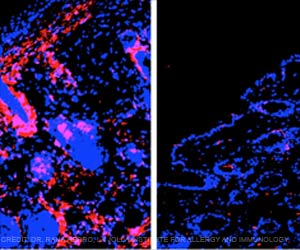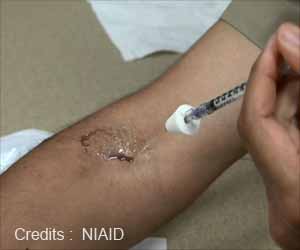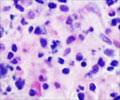Tape stripping for cellular marker evaluation maybe a new non-invasive option instead of tissue biopsies to monitor children with atopic dermatitis (AD), reports a new study.

‘Tape strips are useful to identify biomarkers in the skin of young children with atopic dermatitis as it is painless, non-scarring, and allow repeated sampling.
’
Read More..




According to the lead author of the paper, Emma Guttman-Yassky, MD, PhD, Sol and Clara Kest Professor and Vice-Chair of Dermatology, and Professor of Immunology, at the Icahn School of Medicine, this is the first study to provide a broad characterization of immune and barrier abnormalities in the skin of children with early-onset eczema, those aged five and under who have had eczema for less than six months. Read More..
"Up until now, skin tissue biopsies have been considered the gold standard for evaluating dysregulation in lesional and non-lesional AD/eczema skin," said Dr. Guttman-Yassky. "Therefore, it has been crucial to understanding whether profiling of the tiny amounts of RNA obtained from the outer layers of the skin using tape strips can accurately yield key biomarkers for AD."
Dr. Guttman-Yassky and her team of researchers at the Icahn School of Medicine at Mount Sinai discovered that tape strips applied several times to the same skin areas provide a perfect classifier to discriminate between early-onset AD skin and normal pediatric skin, including biomarkers pathogenically linked to AD. "This work can be highly informative for longitudinal studies in infants and children and in clinical trials for both children and adults," said Dr. Guttman-Yassky, whose past revolutionary research on AD/eczema focused on the mechanism underlying the disease and promoted development of targeted therapeutics for eczema, and who has identified biomarkers to track improvement with current treatments for the disease.
Atopic dermatitis is an inflammatory, extremely itchy skin disorder that affects 10 to 20 percent of children in the United States and more than 31 million adults.
Amy S. Paller, MD, Walter J. Hamlin Professor and Chair of Dermatology at Northwestern and a senior author, said, "While skin biopsies are simple to perform in adults as a way to obtain skin to assess for biomarkers that allow prediction of course and responses to targeted medications, they are nearly impossible to obtain in children, especially small children. We have now demonstrated that tape strips can be used to obtain skin for quantifying expression of numerous genes that are important markers of both immune and barrier function in AD in young children."
Advertisement
Said Dr. Guttman-Yassky, "Being able to collect skin in children for this study noninvasively paves the way for future studies to better understand a wide variety of skin disorders as well as to start identifying markers to predict course, comorbidities, and treatment response in prospective studies."
Advertisement
Mark Lebwohl, MD, Waldman Professor of Dermatology and Chair of the Kimberly and Eric J. Waldman Department of Dermatology at the Icahn School of Medicine at Mount Sinai said, "This important study emphasizes the great need of better understanding immune and barrier alterations in pediatric skin. Dr. Guttman-Yassky’s revolutionary research is continuing to open the door to new therapeutic discoveries by helping to improve the quality of lives of both adults and children with eczema and beyond."
Source-Eurekalert















